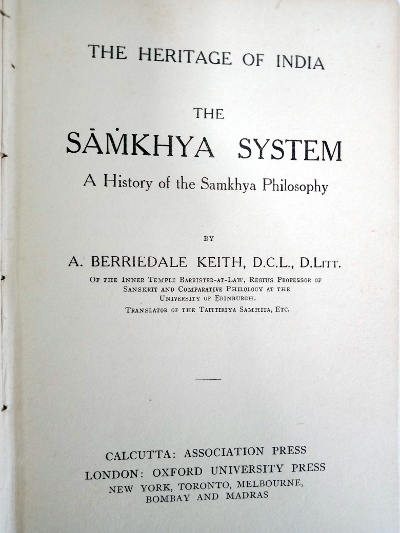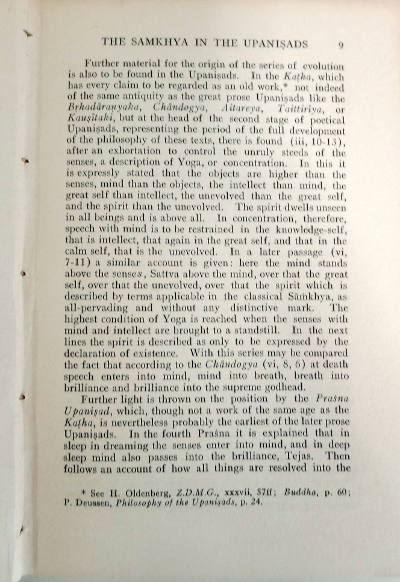About Samkhya (from Wikipedia):
Samkhya is one of the six orthodox schools of Indian philosophy. It is most related to the Yoga school of Hinduism, and it was influential on other schools of Indian philosophy. It forms the theoretical foundation of Yoga. Samkhya’s epistemology accepts three of six pramanas (‘proofs’) as the only reliable means of gaining knowledge, as does yoga. These are pratyakṣa (‘perception’), anumāṇa (‘inference’) and śabda (āptavacana, meaning, ‘word/testimony of reliable sources’). Sometimes described as one of the rationalist schools of Indian philosophy, this ancient school’s reliance on reason was exclusive but strong. It is traditionally viewed as an orthodox philosophy as it accepts the authority of Vedas.
Samkhya is strongly dualistic and has historically been theistic or nontheistic, with some late atheistic authors, such as the author of the Samkhya Sutras. Samkhya philosophy regards the universe as consisting of two independent realities: puruṣa (‘consciousness’) and prakṛti (‘matter’). These two realities exist parallely, and neither is created by the other.
Samkhya philosophy is known for its theory of guṇas (‘qualities, innate tendencies’).Gunas, it teaches, are the three modes of matter:
Sattva: the guna of goodness, compassion, calmness and positivity.
Rajas: the guna of activity, chaos, passion and impulsivity, potentially good or bad.
Tamas: the guna of darkness, ignorance, dullness, laziness, lethargy and negativity.
About the author (from Wikipedia):
Arthur Berriedale Keith (5 April 1879 – 6 October 1944) was a Scottish constitutional lawyer, scholar of Sanskrit and Indologist. He became Regius Professor of Sanskrit and Comparative Philology and Lecturer on the Constitution of the British Empire in the University of Edinburgh. He served in this role from 1914 to 1944.




